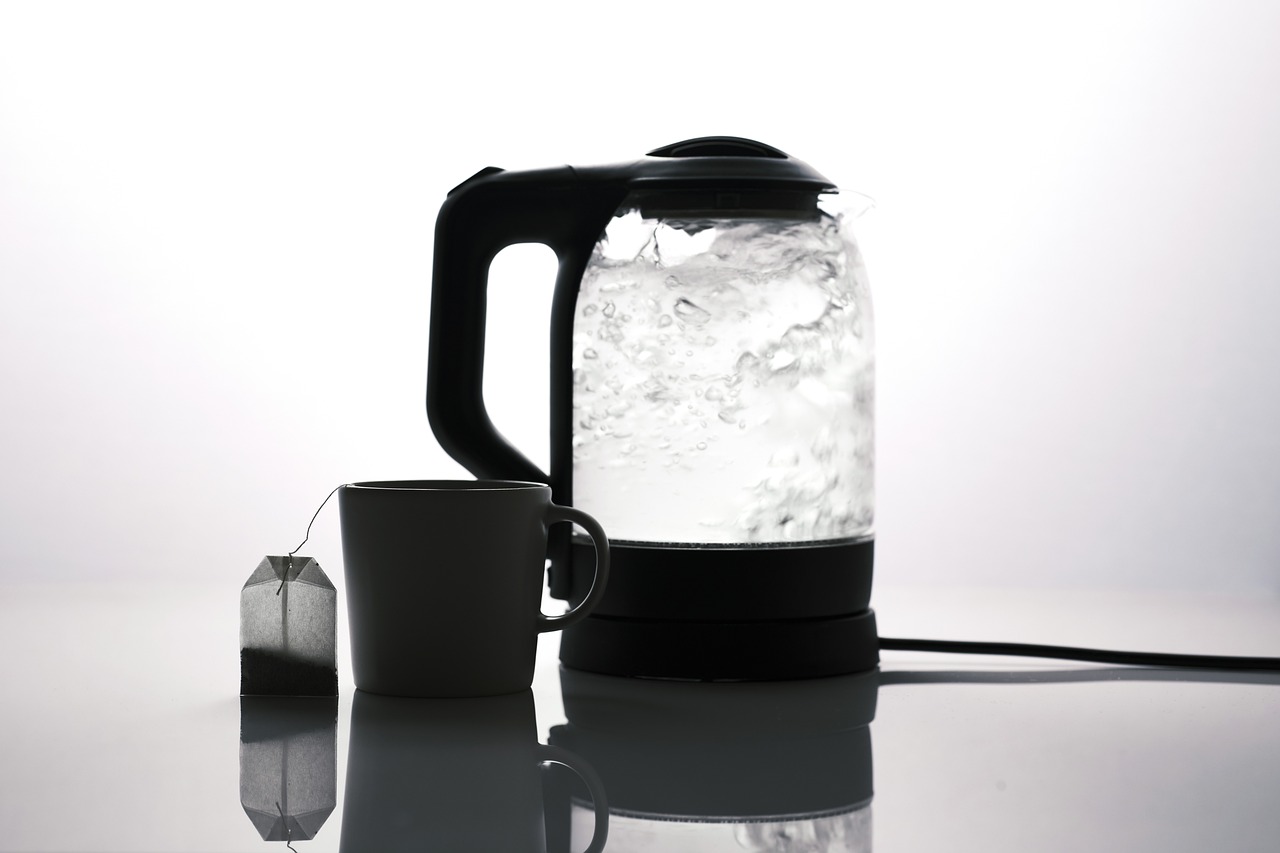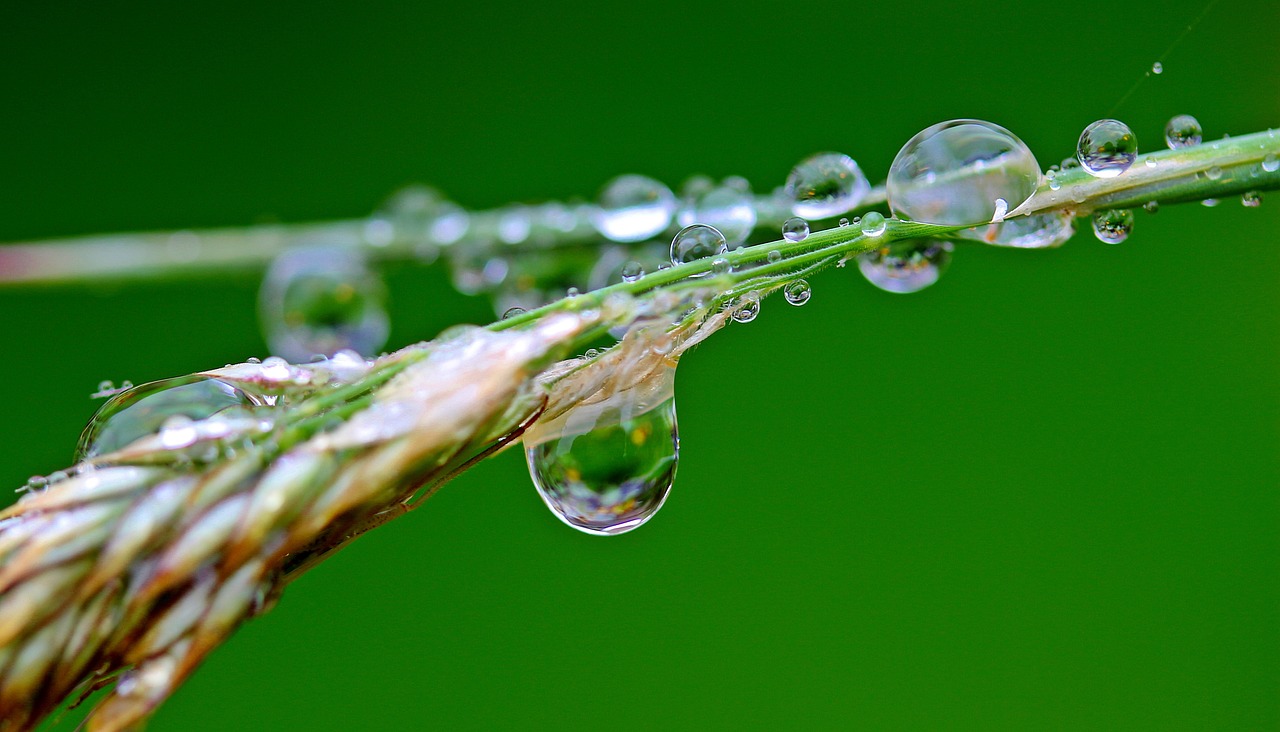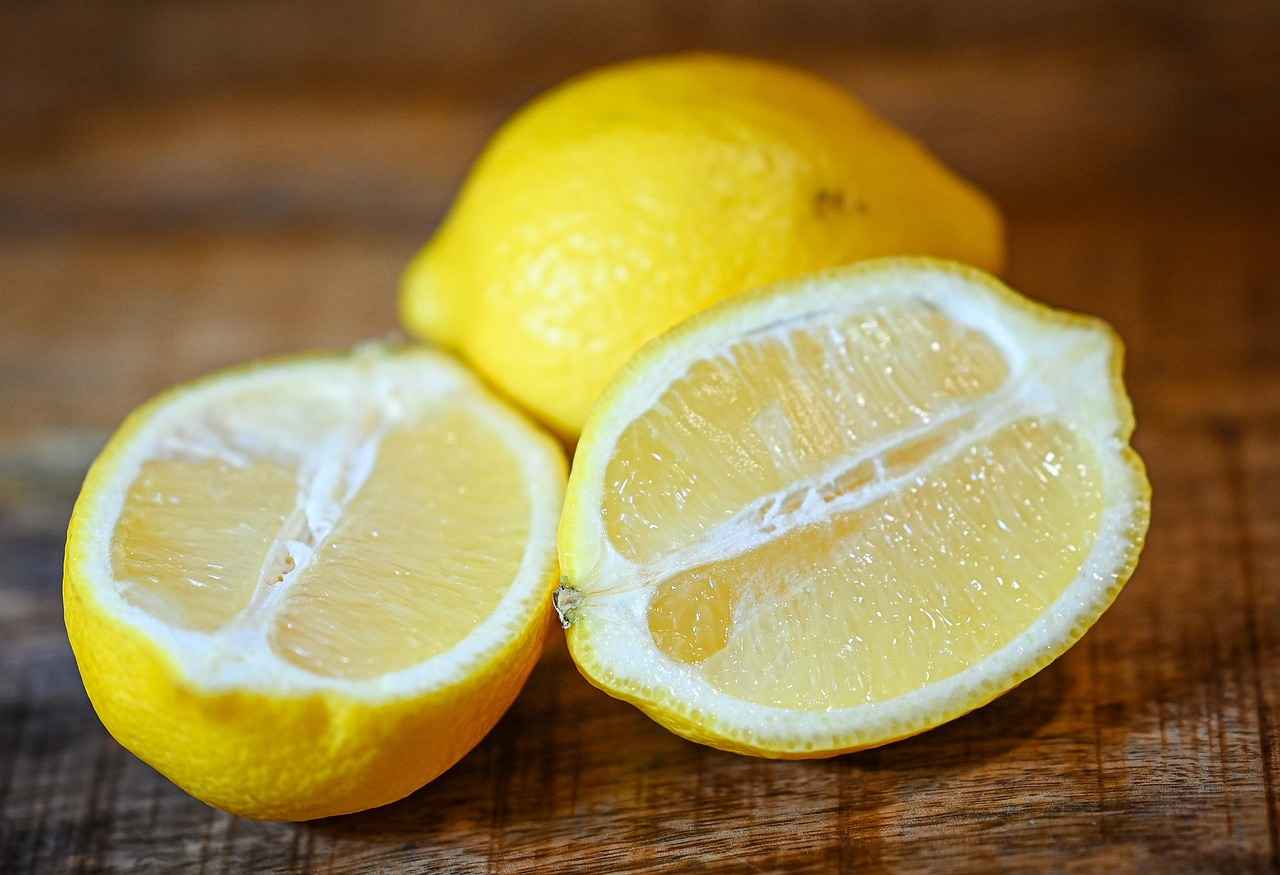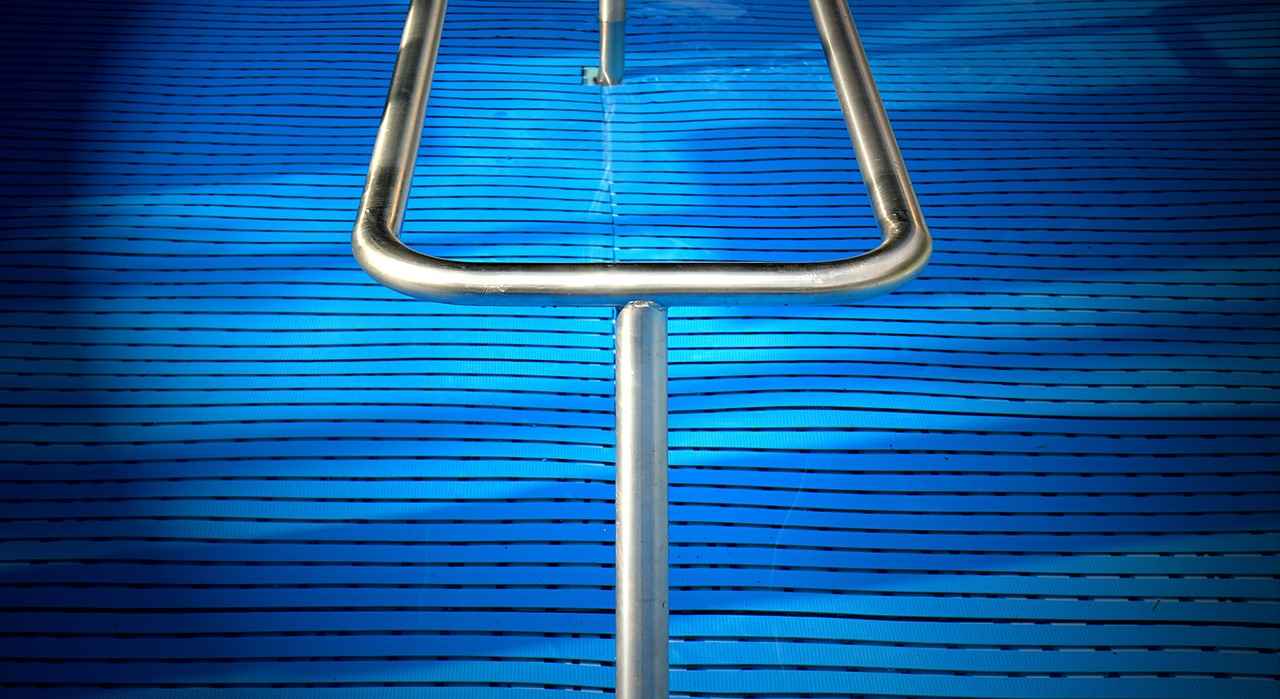While fasting, maintaining proper hydration is essential for overall health and well-being. This article delves into the critical role of hydration during fasting, detailing how much water to consume and the myriad benefits of staying hydrated. Understanding these factors can help you navigate your fasting journey effectively, ensuring you remain energized and focused.
The Importance of Hydration During Fasting
When you fast, your body undergoes various physiological changes. Hydration is crucial as it supports vital bodily functions, including digestion and temperature regulation. Water also plays a pivotal role in transporting nutrients and removing waste products from the body. Without adequate hydration, you may experience fatigue, headaches, and decreased cognitive function.
How Much Water Should You Drink While Fasting?
Determining the right amount of water to drink during fasting can be challenging, as it varies based on individual needs. However, general guidelines can help you stay adequately hydrated:
- Experts often recommend consuming at least 2 to 3 liters of water daily while fasting.
- Adjustments may be necessary based on activity level, climate, and personal health conditions.
Factors Influencing Water Needs
Several factors can affect your hydration requirements:
- Body Weight: Heavier individuals may require more water.
- Exercise Intensity: Increased physical activity leads to greater fluid loss.
- Environmental Conditions: Hot or humid weather can increase your need for water.
Signs of Dehydration to Watch For
It’s essential to recognize the signs of dehydration, which can include:
- Dry mouth
- Fatigue
- Dizziness
- Dark yellow urine
Early detection of these symptoms can help you adjust your water intake accordingly.
Benefits of Staying Hydrated While Fasting
Hydration offers numerous benefits during fasting, such as:
- Improved Digestion: Water aids in digestion and prevents constipation.
- Enhanced Energy Levels: Staying hydrated helps maintain energy and focus.
- Better Mental Clarity: Adequate hydration supports cognitive function and concentration.
Best Practices for Drinking Water During Fasting
Implementing effective strategies for water consumption can enhance your fasting experience:
Timing Your Water Intake
Strategically timing your water intake is beneficial. Consider drinking water:
- Before meals to promote a feeling of fullness.
- Throughout the day to maintain hydration levels.
Types of Water to Consider
Choosing the right type of water can influence your hydration. Options include:
- Plain Water: The most straightforward option.
- Mineral Water: Contains essential minerals that can support health.
- Electrolyte-Infused Beverages: Helpful for replenishing lost minerals during extended fasting.
Potential Risks of Overhydration
While staying hydrated is essential, overhydration can pose risks. Symptoms may include:
- Nausea
- Swelling
- Headaches
Monitoring your water intake is crucial to prevent these issues.
Consulting with Healthcare Professionals
If you’re unsure about your hydration needs during fasting, consulting with healthcare professionals can provide personalized advice tailored to your health status and fasting goals.
Finding Your Ideal Hydration Level
Ultimately, finding the right balance for water intake during fasting is crucial for your health. By understanding your body’s unique needs and implementing best practices, you can ensure a successful fasting experience.
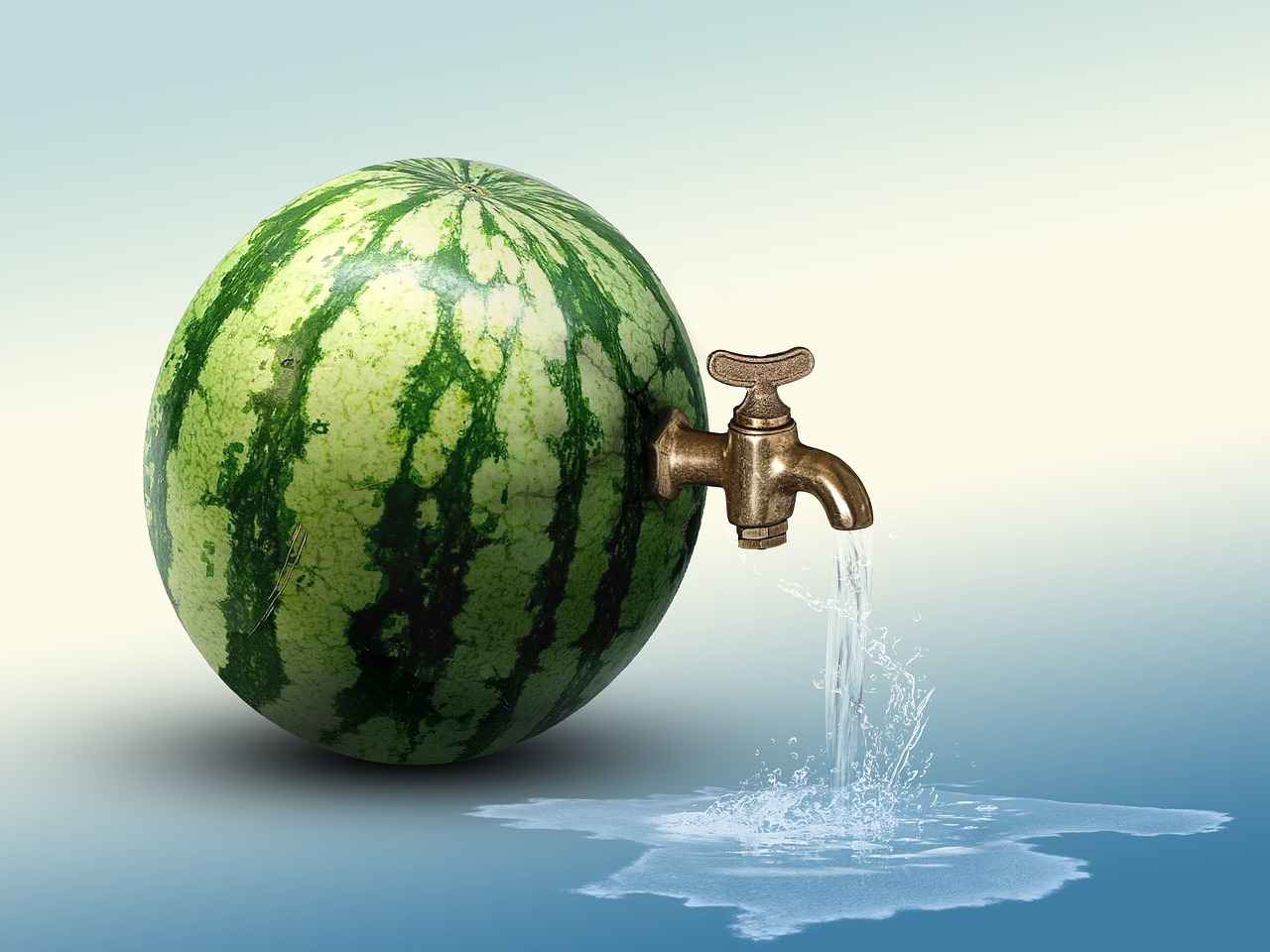
The Importance of Hydration During Fasting
Maintaining proper hydration during fasting is not just beneficial; it is essential for sustaining energy levels and supporting various bodily functions. When food intake is restricted, the need for water becomes even more critical. Understanding the importance of hydration can significantly influence your fasting experience and overall health.
Water plays a vital role in numerous physiological processes. It aids in digestion, helps regulate body temperature, and is crucial for nutrient transportation. During fasting, the body relies on water to facilitate metabolic processes that continue even in the absence of food. Dehydration can lead to fatigue, headaches, and decreased cognitive function, making it imperative to prioritize water intake.
When fasting, the body’s hydration needs may change. Depending on the duration and type of fasting, your water intake may need to be adjusted. For instance, intermittent fasting may require different hydration strategies compared to prolonged fasting. Listening to your body and monitoring your hydration levels is key to a successful fasting experience.
Moreover, during fasting periods, many individuals may not realize how much water they actually need. A common guideline suggests drinking at least eight 8-ounce glasses of water daily, but this can vary widely based on individual factors such as activity level, climate, and personal health. For those engaging in physical activities or living in hotter climates, increasing water intake is crucial to prevent dehydration.
It’s also essential to recognize the signs of dehydration. Symptoms such as dry mouth, dizziness, and fatigue can indicate that your body is not receiving enough fluids. Early detection of these signs can prompt adjustments in your water consumption, ensuring you remain hydrated throughout your fasting period.
In addition to the physical benefits, staying hydrated can enhance your mental clarity. Proper hydration is linked to improved focus and concentration, which can be particularly beneficial during fasting when you may experience hunger pangs or cravings. By drinking water regularly, you can help mitigate these distractions and maintain your motivation.
Implementing best practices for hydration during fasting can significantly improve your overall experience. For example, consider drinking water during designated times rather than consuming large quantities all at once. This approach can help your body absorb fluids more effectively and prevent feelings of fullness that may interfere with your fasting schedule.
Choosing the right type of water is also important. While plain water is typically sufficient, some individuals may benefit from mineral water or electrolyte-infused beverages. These options can replenish essential minerals lost during fasting and help maintain electrolyte balance.
However, it is crucial to find a balance in hydration. Overhydration can lead to complications such as nausea and swelling. Being aware of your body’s signals and adjusting your water intake accordingly can help prevent these issues. If you experience symptoms of overhydration, such as headaches or confusion, it may be necessary to reduce your water consumption.
Consulting with healthcare professionals can provide personalized guidance on your hydration needs during fasting. They can offer insights based on your health status and fasting goals, ensuring you stay within safe limits while maximizing the benefits of your fasting experience.
In summary, understanding the importance of hydration during fasting is vital for maintaining health and well-being. By recognizing your body’s hydration needs, implementing effective water consumption strategies, and monitoring for signs of both dehydration and overhydration, you can enhance your fasting journey and achieve your health goals.

How Much Water Should You Drink While Fasting?
When it comes to fasting, one of the most crucial aspects to consider is your hydration level. Understanding how much water to drink during fasting can significantly impact your overall health and well-being. While individual needs may vary, there are general guidelines that can help you maintain adequate hydration throughout your fasting journey.
The Need for Hydration
During fasting, your body undergoes various changes, and staying hydrated plays a vital role in supporting these processes. Water is essential for numerous bodily functions, including:
- Regulating body temperature
- Transporting nutrients
- Removing waste
- Maintaining energy levels
When food intake is restricted, your body still requires water to function optimally. This makes understanding your hydration needs during fasting even more critical.
General Guidelines for Water Intake
Many health experts recommend a baseline of about 2 to 3 liters of water daily, which is roughly equivalent to 8 to 12 cups. However, this amount can vary based on several factors:
- Activity Level: If you engage in physical activity, you may need to increase your water intake to compensate for fluid loss through sweat.
- Climate: Hot or humid conditions can lead to increased perspiration, necessitating more frequent hydration.
- Body Weight: Larger individuals may require more water to stay hydrated compared to those with lower body weight.
Signs of Dehydration
During fasting, it is essential to be aware of the signs of dehydration. Common symptoms include:
- Dry mouth
- Fatigue
- Dizziness
- Headaches
Recognizing these signs early can help you adjust your water intake to avoid adverse effects on your health.
Benefits of Staying Hydrated While Fasting
Staying adequately hydrated during fasting offers numerous benefits such as:
- Improved digestion: Water aids in the digestive process, helping to alleviate discomfort.
- Enhanced energy levels: Proper hydration can help maintain your energy, preventing fatigue.
- Better mental clarity: Staying hydrated can improve focus and concentration, making it easier to stick to your fasting goals.
Best Practices for Drinking Water During Fasting
Implementing effective strategies for water consumption can enhance your fasting experience. Here are a few tips:
- Timing: Consider drinking water during non-fasting hours to ensure your body absorbs it efficiently.
- Type of Water: Opt for plain water, but you may also include mineral water or electrolyte-infused drinks for added benefits.
Potential Risks of Overhydration
While hydration is important, it’s also possible to drink too much water, leading to overhydration. Symptoms may include:
- Nausea
- Swelling
- Headaches
Monitoring your water intake is essential to prevent these issues.
Consulting Healthcare Professionals
If you’re uncertain about your hydration needs during fasting, consulting with healthcare professionals can provide personalized advice tailored to your specific health status and fasting goals.
In summary, finding the right balance of water intake while fasting is critical for maintaining health. By understanding your body’s needs and implementing best practices, you can ensure a successful fasting experience.
General Guidelines for Water Intake
When it comes to hydration, especially during fasting, understanding your water intake needs is crucial. While many experts suggest a baseline of eight 8-ounce glasses of water per day, this figure is not a one-size-fits-all solution. Individual hydration needs can vary significantly based on several factors, including activity level, climate, body weight, and overall health.
To ensure you stay adequately hydrated during fasting, consider the following guidelines:
- Baseline Recommendations: The common recommendation of eight 8-ounce glasses, totaling about 2 liters, serves as a general guideline. However, it’s important to listen to your body and adjust accordingly.
- Activity Level: If you engage in physical activities or exercise regularly, you may need to increase your water intake. Physical exertion leads to fluid loss through sweat, necessitating additional hydration.
- Climate Considerations: Hot and humid weather can increase your need for water. In such conditions, your body loses fluids more rapidly, and you should aim to drink more water to compensate.
- Body Weight and Composition: Larger individuals generally require more water. A common formula suggests drinking half your body weight in ounces of water. For example, if you weigh 160 pounds, aim for about 80 ounces of water daily.
- Health Conditions: Certain health conditions can affect hydration needs. For instance, those with kidney issues or those taking medications that cause dehydration should consult a healthcare professional for personalized recommendations.
In addition to these guidelines, it’s essential to pay attention to your body’s signals. Here are some practical tips to help you monitor your hydration:
- Check Urine Color: A simple way to assess hydration is by observing the color of your urine. Light yellow indicates proper hydration, while dark yellow suggests you may need more fluids.
- Listen to Your Thirst: Thirst is a natural indicator that your body needs water. Don’t ignore it; drink water whenever you feel thirsty.
- Regular Water Intake: Instead of consuming large amounts of water at once, aim to drink small amounts consistently throughout the day. This helps maintain hydration levels without overwhelming your system.
Moreover, the type of water you consume can also influence hydration. While plain water is often the best choice, consider incorporating electrolyte-infused beverages or mineral water if you’re fasting for extended periods or engaging in intense physical activity.
Ultimately, staying hydrated during fasting is about finding a balance that works for you. By understanding the various factors that influence your hydration needs, you can make informed decisions that support your health and wellness throughout your fasting experience.
Factors Influencing Water Needs
When it comes to fasting, understanding the factors influencing your hydration needs is essential for maintaining optimal health. Individual differences play a significant role in determining how much water you should consume. This article delves into various aspects that can affect your hydration requirements during fasting.
Your body weight is a crucial factor in assessing hydration needs. Generally, individuals with higher body weight may require more water compared to those with lower weight. A common guideline suggests consuming approximately half an ounce of water per pound of body weight daily. Therefore, a person weighing 160 pounds would need about 80 ounces of water each day, adjusting for fasting periods accordingly.
The intensity of your exercise also significantly impacts hydration. During fasting, if you engage in high-intensity workouts, your body loses more fluids through sweat. It’s essential to replenish those fluids to avoid dehydration. For instance, if you exercise vigorously, consider increasing your water intake by an additional 16 to 24 ounces for every hour of exercise. This adjustment helps maintain energy levels and supports recovery.
Environmental factors such as temperature and humidity can greatly affect your hydration needs. In hotter climates, your body loses more water through perspiration, necessitating increased fluid intake. Conversely, during colder months, while you may not feel as thirsty, your body still requires adequate hydration. It’s essential to remain vigilant about your water consumption regardless of the season.
Pre-existing health conditions can also alter hydration requirements. For example, conditions like diabetes or kidney disease can influence how your body processes fluids. If you have any chronic health issues, it’s advisable to consult with a healthcare professional to determine your specific hydration needs during fasting.
Age and gender can further refine hydration needs. Generally, women may require slightly less water than men due to differences in body composition. Additionally, older adults may have a diminished sense of thirst, making it crucial for them to consciously monitor their fluid intake during fasting.
Your daily activity levels play a pivotal role in determining how much water you should drink. For those with a sedentary lifestyle, the standard recommendations may suffice. However, if you lead an active lifestyle, your body will require more fluids to compensate for the additional loss through sweat and respiration.
Ultimately, the best way to gauge your hydration needs is by listening to your body. Pay attention to signs of thirst, and monitor the color of your urine. A pale yellow color typically indicates proper hydration, while darker urine is a sign that you may need to increase your fluid intake.
In conclusion, understanding the various factors influencing your hydration needs during fasting is vital for maintaining health and well-being. By considering your body weight, exercise intensity, environmental conditions, health status, age, and personal activity levels, you can better tailor your water intake to meet your individual needs. This personalized approach ensures that you remain adequately hydrated and supports your overall health throughout your fasting journey.
Signs of Dehydration to Watch For
During fasting, it is crucial to be aware of the signs of dehydration to maintain optimal health and well-being. Dehydration can occur when the body loses more fluids than it takes in, leading to various symptoms that can affect your fasting experience. Recognizing these signs early can help you adjust your water intake accordingly and prevent more serious health complications.
- Dry Mouth: One of the earliest indicators of dehydration is a dry or sticky feeling in the mouth. This sensation can make swallowing uncomfortable and may signal that your body needs more fluids.
- Fatigue: Feeling unusually tired or lethargic during fasting can be a sign that your body is not receiving enough hydration. Water plays a vital role in maintaining energy levels, and dehydration can lead to decreased stamina and motivation.
- Dizziness: If you experience dizziness or lightheadedness, it may be due to inadequate fluid intake. Dehydration can affect blood circulation, leading to a drop in blood pressure and causing these symptoms.
- Headaches: Frequent headaches during fasting may also indicate dehydration. The brain is highly sensitive to changes in hydration levels, and a lack of water can lead to discomfort and pain.
- Dark Urine: Monitoring the color of your urine can provide insight into your hydration status. Dark yellow or amber urine typically suggests dehydration, while light yellow indicates adequate hydration.
- Dry Skin: Skin that feels dry or lacks elasticity can be another sign of dehydration. Proper hydration is essential for maintaining skin health and appearance.
To combat dehydration, it is essential to prioritize water intake during your fasting period. Aim to drink a sufficient amount of water based on your individual needs, which can vary depending on factors such as activity level, climate, and personal health. A general guideline is to consume at least eight 8-ounce glasses of water daily, but adjustments may be necessary for those engaging in physical activities or living in hotter environments.
In addition to drinking water, consider incorporating electrolyte-rich beverages to replenish lost minerals, especially if you are fasting for an extended period. These beverages can help maintain your body’s electrolyte balance and support overall hydration.
Listening to your body is key when it comes to hydration. If you notice any of the signs mentioned above, take immediate action by increasing your water intake. Staying vigilant and proactive about your hydration needs will not only enhance your fasting experience but also promote better health outcomes.
In summary, recognizing the signs of dehydration is vital during fasting. By being aware of symptoms such as dry mouth, fatigue, dizziness, headaches, dark urine, and dry skin, you can take steps to adjust your water intake and maintain your health. Remember, staying hydrated is not just about drinking water; it’s about ensuring your body functions optimally, allowing you to achieve your fasting goals successfully.
Benefits of Staying Hydrated While Fasting
Staying hydrated during fasting is not just a matter of quenching thirst; it has profound implications for your overall health and well-being. The benefits of hydration while fasting extend beyond mere survival, impacting various aspects of physical and mental performance. Below, we delve into the key advantages of maintaining adequate hydration during fasting periods.
- Improved Digestion: Hydration plays a critical role in facilitating digestion. When fasting, your digestive system can become sluggish due to the lack of food intake. Drinking water helps to flush out toxins and supports the smooth functioning of the digestive tract. This can lead to fewer digestive issues and a more comfortable fasting experience.
- Enhanced Energy Levels: One of the common challenges during fasting is the feeling of fatigue. Staying hydrated can significantly boost your energy levels by ensuring that your body efficiently transports nutrients and oxygen to cells. This enhances metabolic processes and helps maintain your energy throughout the fasting period.
- Better Mental Clarity: Dehydration can lead to cognitive decline, affecting memory, focus, and overall mental clarity. Proper hydration supports brain function, helping you to stay sharp and maintain concentration during your fast. This is particularly beneficial for those who need to remain productive or engaged in mentally demanding tasks.
- Regulated Body Temperature: Hydration is essential for thermoregulation. When fasting, your body may struggle to maintain a stable temperature, especially during physical activity. Drinking enough water helps to cool your body down and prevents overheating, thus promoting a more comfortable fasting experience.
- Reduced Hunger Pangs: Many individuals experience hunger pangs while fasting, which can be uncomfortable. Drinking water can help to alleviate this sensation by filling your stomach and signaling to your brain that you are not as hungry as you might think. This can help you stay focused on your fasting goals without the distraction of constant cravings.
- Detoxification: Fasting naturally promotes detoxification, but hydration enhances this process. Water helps to support kidney function, allowing your body to effectively remove waste products and toxins. This detoxifying effect can lead to improved skin health and overall vitality.
In summary, the benefits of staying hydrated while fasting are numerous and impactful. From improved digestion and enhanced energy levels to better mental clarity and effective detoxification, proper hydration is essential for maximizing the advantages of fasting. By prioritizing your water intake, you can navigate your fasting journey with greater ease and success.

Best Practices for Drinking Water During Fasting
When embarking on a fasting journey, hydration plays a pivotal role in ensuring your experience is not only manageable but also beneficial. Understanding the best practices for drinking water during fasting can significantly enhance your overall well-being and fasting results.
Understanding the Timing of Water Intake
One of the most effective strategies for staying hydrated while fasting is to time your water intake wisely. Drinking water at specific intervals can help you maintain hydration without interfering with your fasting schedule. For example, consider drinking a glass of water:
- Upon waking up to kickstart your metabolism.
- Before meals to aid digestion when you break your fast.
- Throughout the day to maintain hydration levels.
Choosing the Right Type of Water
The type of water you consume can also impact your hydration levels. Here are some options to consider:
- Plain Water: The most basic yet effective form of hydration.
- Mineral Water: Contains essential minerals that can replenish electrolytes.
- Electrolyte-Infused Water: Helps maintain electrolyte balance, especially during extended fasting periods.
Listening to Your Body
While general guidelines suggest a baseline of around 2 to 3 liters of water daily, individual needs may vary. Pay attention to your body’s signals. If you feel thirsty, it’s a clear indication that your body requires more water. Additionally, monitor for signs of dehydration such as:
- Dry mouth
- Fatigue
- Dizziness
Implementing a Hydration Schedule
Creating a hydration schedule can help you stay on track. For instance, you might set reminders to drink water at regular intervals. This not only ensures consistent hydration but also prevents overwhelming your system with too much water at once.
Avoiding Overhydration
While staying hydrated is crucial, it’s equally important to avoid overhydration. Consuming excessive amounts of water can lead to a condition known as water intoxication, which can cause symptoms such as nausea, headaches, and in severe cases, swelling of the brain. Therefore, balance is key.
Consulting with Professionals
If you are unsure about your hydration needs, consider consulting with a healthcare professional. They can provide personalized advice based on your health status, activity level, and fasting goals. This tailored approach can help you optimize your hydration strategy while fasting.
Conclusion
Incorporating these best practices for drinking water during fasting can greatly enhance your experience. By paying attention to timing, choosing the right type of water, and listening to your body, you can maintain optimal hydration levels. Remember, hydration is not just about drinking water; it’s about understanding your body’s needs and responding accordingly.
Timing Your Water Intake
When it comes to fasting, can be just as important as the amount you consume. Proper hydration plays a crucial role in maintaining your energy levels and overall well-being during fasting periods. By strategically planning when you drink water, you can maximize its benefits while adhering to your fasting schedule.
One effective approach is to divide your water intake into specific windows. For instance, if you are following an intermittent fasting plan, consider drinking water during your eating window. This allows your body to absorb the fluids more efficiently, replenishing lost hydration without interfering with your fasting state. Additionally, consuming water before and after meals can aid in digestion and enhance nutrient absorption.
Another key strategy is to pay attention to your body’s natural rhythms. Many people find that drinking water in the morning, right after waking up, helps kickstart their metabolism and rehydrate their bodies after hours of sleep. Similarly, staying hydrated throughout the day can help prevent feelings of fatigue and lethargy that often accompany fasting.
Moreover, consider incorporating electrolyte-infused water into your hydration strategy. During fasting, especially extended periods, your body can lose essential electrolytes. Drinking water that contains electrolytes can help maintain your body’s balance, preventing symptoms like dizziness or muscle cramps.
It’s also beneficial to listen to your body. If you feel thirsty, it’s a clear indication that you need to hydrate. However, be mindful of the quantity you consume at once. Drinking large amounts of water in a short period can lead to discomfort and may not be as effective as sipping throughout the day.
Additionally, consider the temperature of the water you drink. Some studies suggest that drinking cold water might slightly boost your metabolism, while warm water can aid in digestion. Experimenting with temperatures can help you find what feels best for your body.
Incorporating herbal teas or infusions can also be a great way to enhance hydration. These beverages not only provide hydration but can also offer additional health benefits, such as improved digestion and relaxation. Just ensure they are caffeine-free, as caffeine can lead to dehydration.
Lastly, be aware of the environmental factors that may influence your hydration needs. Hot weather, high humidity, or intense physical activity can all increase your need for water. Adjust your intake accordingly to ensure you remain adequately hydrated.
In summary, effectively can significantly enhance your fasting experience. By drinking water at strategic times, incorporating electrolyte-rich options, and listening to your body’s signals, you can maintain optimal hydration levels while respecting your fasting schedule. Remember, staying hydrated is key to feeling your best during any fasting journey.
Types of Water to Consider
When it comes to fasting, hydration plays a pivotal role in ensuring that your body functions optimally. The type of water you choose can significantly impact your hydration levels and overall well-being. Below, we delve into various types of water you might consider during your fasting period, highlighting their unique benefits and potential roles in enhancing your hydration strategy.
- Plain Water: The most accessible and often the most recommended option, plain water is essential for maintaining hydration. It contains no calories, making it an ideal choice during fasting. Drinking sufficient amounts of plain water can help flush out toxins, support digestion, and keep your energy levels stable.
- Mineral Water: This type of water contains essential minerals such as calcium, magnesium, and potassium, which can help replenish electrolytes lost during fasting. Mineral water can aid in muscle function and hydration, making it a great choice for those who engage in physical activities while fasting.
- Electrolyte-Infused Beverages: These drinks are designed to replenish electrolytes and are particularly beneficial during extended fasting or intense workouts. They can help maintain hydration levels and prevent fatigue. However, it’s important to choose options with low sugar content to avoid breaking your fast.
- Herbal Infused Water: Adding herbs like mint, basil, or lemon can enhance the flavor of your water without adding calories. These infusions can provide subtle health benefits, such as improved digestion and enhanced detoxification, making hydration more enjoyable.
- Coconut Water: Naturally rich in electrolytes, coconut water is a great alternative for hydration. It contains potassium, sodium, and magnesium, which can help maintain fluid balance in the body. However, it does contain some natural sugars, so moderation is key during fasting.
- Alkaline Water: This type of water has a higher pH level and is believed by some to neutralize acid in the bloodstream. While scientific evidence is limited, proponents claim that alkaline water can enhance hydration and detoxification. If you prefer a less acidic option, alkaline water might be worth trying.
Choosing the right type of water can influence your hydration levels significantly. Each option has its unique advantages, so consider your personal health goals and preferences when selecting your hydration source during fasting. Staying well-hydrated is essential for maintaining energy levels and supporting bodily functions, especially when food intake is restricted.
In conclusion, understanding the types of water available can help you make informed choices about your hydration during fasting. Whether you opt for plain water, mineral water, or electrolyte-infused beverages, ensuring adequate hydration is crucial for a successful fasting experience. Remember to listen to your body and adjust your water intake based on your individual needs and activity levels.
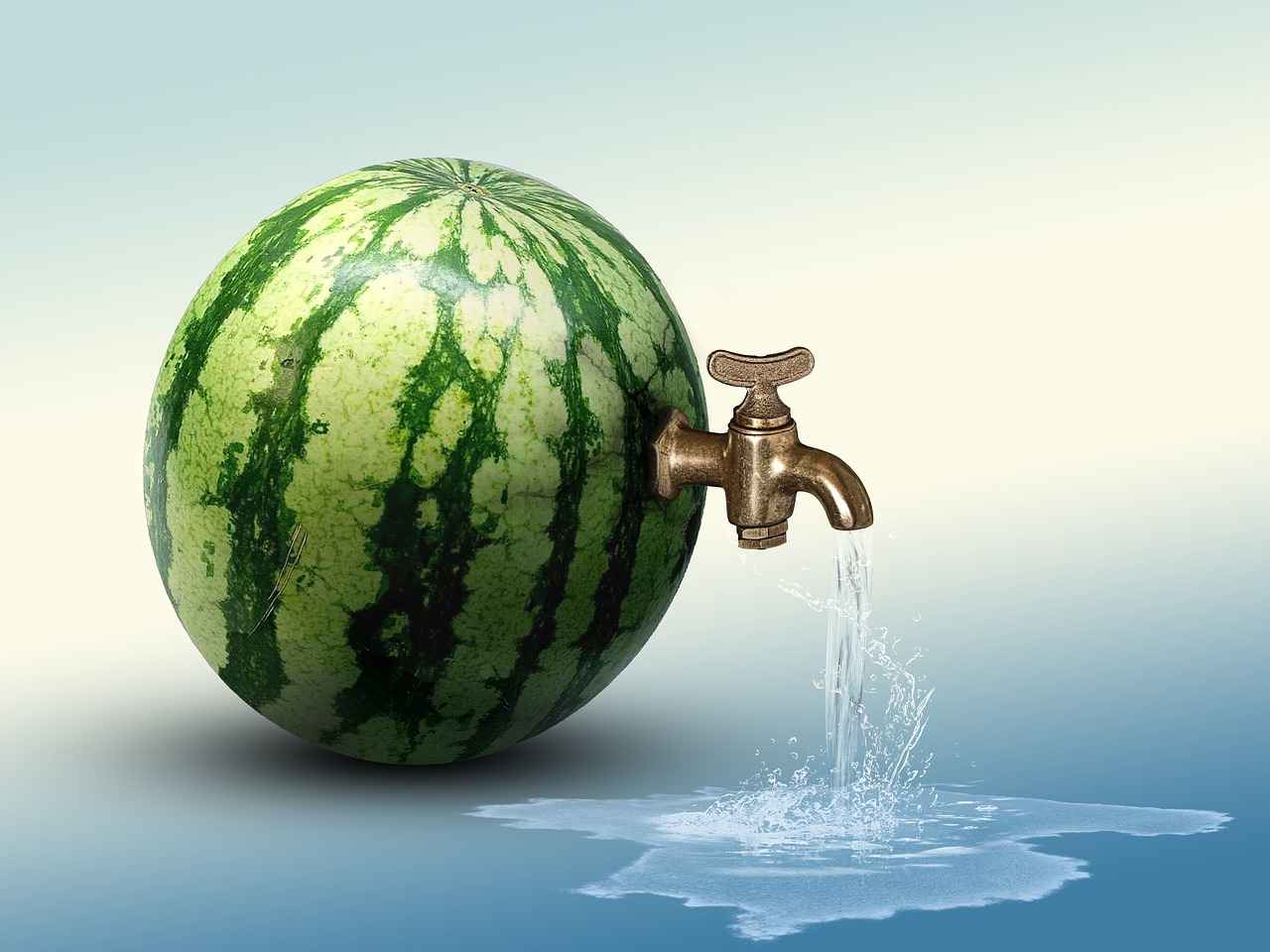
Potential Risks of Overhydration
When it comes to fasting, maintaining proper hydration is critical for overall health and well-being. However, it is equally important to recognize that overhydration can lead to serious health complications. Understanding the potential risks associated with excessive water intake is essential for anyone engaging in fasting practices.
Overhydration, also known as water intoxication or hyperhydration, occurs when the body takes in more water than it can expel, leading to an imbalance in electrolytes. This can dilute sodium levels in the bloodstream, a condition known as hyponatremia. It is crucial to strike a balance between staying hydrated and avoiding excessive water consumption.
Recognizing the symptoms of overhydration is vital for maintaining health during fasting. Some common signs include:
- Nausea and vomiting
- Headaches and confusion
- Swelling in hands, feet, or face
- Muscle weakness or cramps
- Fatigue and lethargy
If you experience any of these symptoms while fasting, it is important to assess your water intake and make necessary adjustments.
Several factors can contribute to the risk of overhydration, including:
- High water intake: Consuming large volumes of water in a short period can overwhelm the kidneys.
- Low sodium intake: A diet low in sodium can increase the risk of electrolyte imbalances.
- Intense physical activity: Excessive sweating might lead individuals to drink more water than needed, leading to overhydration.
- Medical conditions: Certain health issues, such as kidney disease or heart failure, can impair the body’s ability to regulate fluid balance.
To avoid the risks of overhydration while fasting, consider the following strategies:
- Monitor your water intake: Keep track of how much water you consume daily and adjust according to your needs.
- Listen to your body: Pay attention to thirst signals and drink when you feel thirsty, rather than adhering to a strict schedule.
- Include electrolytes: Incorporate electrolyte-rich beverages or foods to help maintain sodium levels, especially if you are fasting for extended periods.
- Consult a healthcare professional: If you are unsure about your hydration needs, seek advice from a healthcare provider who can offer personalized recommendations.
While hydration is a key component of successful fasting, it is essential to be aware of the potential risks of overhydration. By understanding the signs and factors associated with excessive water intake, individuals can make informed decisions about their hydration needs during fasting. Prioritizing a balanced approach will help ensure a safe and effective fasting experience.
Recognizing Symptoms of Overhydration
When it comes to maintaining a healthy lifestyle, hydration plays a pivotal role, especially during fasting. While drinking enough water is essential, it is equally important to recognize the signs of overhydration, which can lead to serious health issues. This section delves into the symptoms of overhydration, helping you stay informed and balanced.
Understanding Overhydration
Overhydration occurs when the body takes in more water than it can eliminate, resulting in an imbalance of electrolytes. This condition can be particularly concerning during fasting, where water intake may increase without a corresponding intake of food. Being aware of the symptoms can help you manage your hydration effectively.
- Nausea: One of the first signs of overhydration, nausea can occur as the body struggles to process excess fluid.
- Swelling: Excess fluid can lead to swelling in the hands, feet, and other parts of the body, known as edema.
- Headaches: Overhydration may cause headaches, which can be mistaken for dehydration symptoms.
- Confusion: An electrolyte imbalance can affect cognitive functions, leading to confusion or disorientation.
- Fatigue: Feeling unusually tired can be a signal that your body is overwhelmed with excess fluid.
Monitoring Your Water Intake
To prevent overhydration, it is crucial to monitor your water intake, particularly during fasting periods. Here are some practical tips:
- Set a Daily Limit: Establish a daily water intake goal based on your individual needs, factoring in activity level and environmental conditions.
- Listen to Your Body: Pay attention to your body’s signals. If you experience any symptoms of overhydration, consider reducing your water intake.
- Track Your Hydration: Keeping a journal or using a hydration app can help you stay aware of how much water you consume throughout the day.
Consulting Professionals
If you are unsure about your hydration needs, especially during fasting, it is wise to consult with a healthcare professional. They can provide personalized recommendations based on your health status and fasting goals.
In conclusion, while staying hydrated is essential for health, being aware of the symptoms of overhydration is equally important. By monitoring your water intake and recognizing the signs of excess hydration, you can maintain a healthy balance that supports your well-being throughout your fasting journey.
Consulting with Healthcare Professionals
When embarking on a fasting journey, it is crucial to understand the importance of hydration. While many people focus on what they can or cannot eat during fasting, they often overlook how much water they should be consuming. can be a vital step for anyone unsure about their hydration needs during this period. Personalized advice tailored to your unique health status and fasting goals can significantly enhance your experience.
Fasting can affect individuals differently based on various factors such as age, gender, weight, and overall health. A healthcare professional can assess these factors and provide tailored recommendations. For instance, if you have underlying health conditions like diabetes or kidney issues, your hydration needs may differ significantly from a healthy individual. Experts can help you navigate these complexities, ensuring that your fasting is both safe and effective.
One of the key advantages of consulting with a healthcare provider is learning to recognize your body’s signals. They can educate you on how to identify signs of dehydration or overhydration. Symptoms such as dry mouth, fatigue, and dizziness may indicate that you need to increase your water intake. Conversely, if you experience nausea or swelling, it could be a sign of overhydration, which can also pose serious health risks.
Healthcare professionals can help you develop a personalized hydration plan that aligns with your fasting goals. This plan may include:
- Daily water intake recommendations based on your weight and activity level.
- Timing for water consumption to maximize absorption.
- Types of beverages that may enhance hydration, such as electrolyte-infused drinks.
Such a tailored approach can help you maintain optimal hydration levels, ensuring that you feel energized and focused throughout your fasting period.
Regular check-ins with healthcare professionals can help you monitor your hydration status and overall health during fasting. They can adjust your hydration plan as needed based on your progress and any changes in your health. This ongoing support can be invaluable, especially for those new to fasting.
In addition to personalized advice, healthcare professionals can provide insights into the latest research on hydration and fasting. Staying informed about new findings can empower you to make better decisions about your health. For example, studies may reveal the benefits of certain types of water or the optimal amounts for different fasting methods.
In summary, consulting with healthcare professionals about your hydration needs during fasting is not just advisable; it’s essential. Their expertise can help you navigate the complexities of hydration, ensuring that you remain healthy and energized throughout your fasting journey. By understanding your body and following professional guidance, you can make the most of your fasting experience.

Conclusion: Finding Your Ideal Hydration Level
Finding the right balance for water intake during fasting is essential for your health. By understanding your body’s needs and implementing best practices, you can ensure a successful fasting experience. This article delves into the importance of hydration during fasting, how much water to consume, and the benefits of staying hydrated, ensuring you maintain health and well-being throughout your fasting journey.
Proper hydration plays a crucial role during fasting. When you abstain from food, your body continues to function and requires water for various essential processes. Water aids in digestion, nutrient absorption, and detoxification, which are vital even when you are not consuming food. Staying hydrated helps maintain energy levels and supports bodily functions, making it easier to adhere to your fasting regimen.
The amount of water you should consume during fasting can differ based on several factors, including your body weight, activity level, and the climate you live in. Generally, the eight 8-ounce glasses rule is a good starting point, but adjustments may be necessary. Listen to your body and drink when you feel thirsty.
- Baseline Intake: Aim for at least 2 liters (about 8 cups) of water daily.
- Activity Level: Increase your intake if you engage in physical activities.
- Climate Considerations: Hot weather may require additional hydration.
Individual factors such as body weight, exercise intensity, and environmental conditions can significantly impact your hydration needs during fasting. Personalized assessments are crucial for optimal health. For instance, larger individuals or those engaging in high-intensity workouts may require more water to stay hydrated.
Recognizing the signs of dehydration is vital during fasting. Symptoms can include:
- Dry mouth
- Fatigue
- Dizziness
Early detection allows you to adjust your water intake accordingly to prevent adverse effects on your health.
Staying hydrated offers numerous benefits during fasting, including:
- Improved Digestion: Water helps to facilitate the digestive process.
- Enhanced Energy Levels: Proper hydration can help combat fatigue.
- Better Mental Clarity: Hydration supports cognitive functions, helping you stay focused and motivated.
Implementing effective strategies for water consumption can enhance your fasting experience. Knowing when and how to drink water is essential for maximizing hydration benefits.
Strategically timing your water intake can help you stay hydrated without disrupting your fasting schedule. Consider drinking water during specific windows, such as:
- Before meals
- Between meals
- When you feel thirsty
Choosing the right type of water can influence your hydration levels. Options include:
- Plain Water: The most straightforward choice.
- Mineral Water: Contains essential minerals that can support hydration.
- Electrolyte-Infused Beverages: Useful for replenishing lost minerals during extended fasts.
While staying hydrated is crucial, overhydration can pose risks. Understanding the balance between hydration and potential health issues is essential for safe fasting practices.
Be aware of the symptoms of overhydration, which can include:
- Nausea
- Swelling
- Headaches
Monitoring your water intake is crucial to prevent these issues and maintain a healthy balance.
If you’re unsure about your hydration needs during fasting, consulting with healthcare professionals can provide personalized advice based on your health status and fasting goals.
In summary, finding the right balance for water intake during fasting is essential for your health. By understanding your body’s needs and implementing best practices, you can ensure a successful fasting experience. Stay attentive to your hydration levels, and remember that proper water intake can significantly enhance your fasting journey.
Frequently Asked Questions
- How much water should I drink while fasting?
While there’s no one-size-fits-all answer, a good rule of thumb is to aim for at least eight 8-ounce glasses of water daily. However, this can vary based on your individual needs, activity level, and the climate you’re in.
- What are the signs of dehydration during fasting?
Common signs include a dry mouth, fatigue, dizziness, and dark-colored urine. If you notice any of these symptoms, it’s crucial to increase your water intake to stay healthy.
- Can I drink flavored water or electrolyte drinks while fasting?
Yes, flavored water and electrolyte drinks can be beneficial, especially if they are low in calories. They can help keep you hydrated and may provide additional benefits during your fasting period.
- Is it possible to drink too much water while fasting?
Absolutely! Overhydration can lead to symptoms like nausea and swelling. It’s important to find a balance and listen to your body’s signals.
- Should I consult a healthcare professional regarding my hydration needs?
If you’re unsure about how much water you should be drinking while fasting, it’s always a good idea to consult with a healthcare professional. They can provide personalized advice based on your health and fasting goals.

